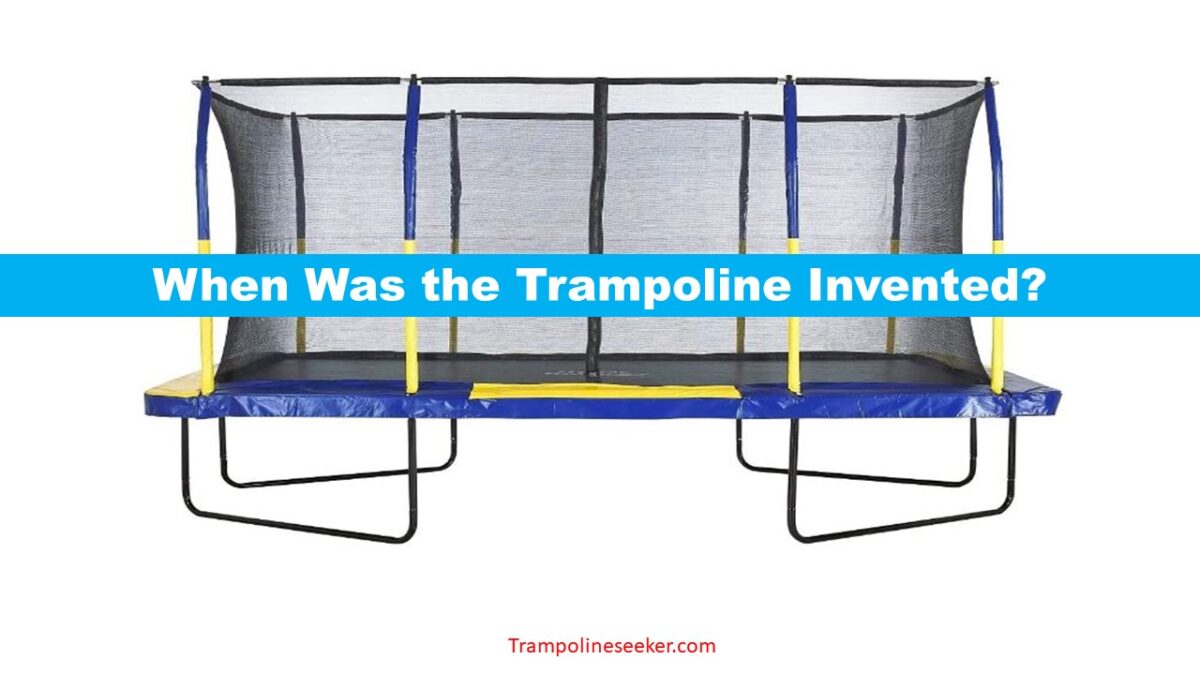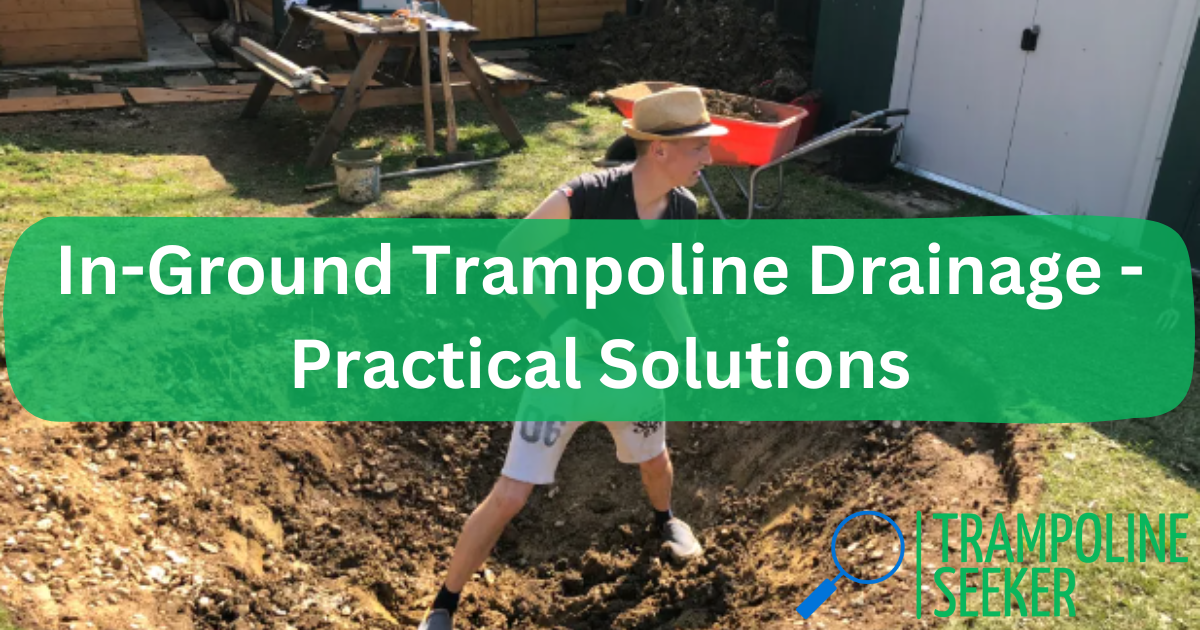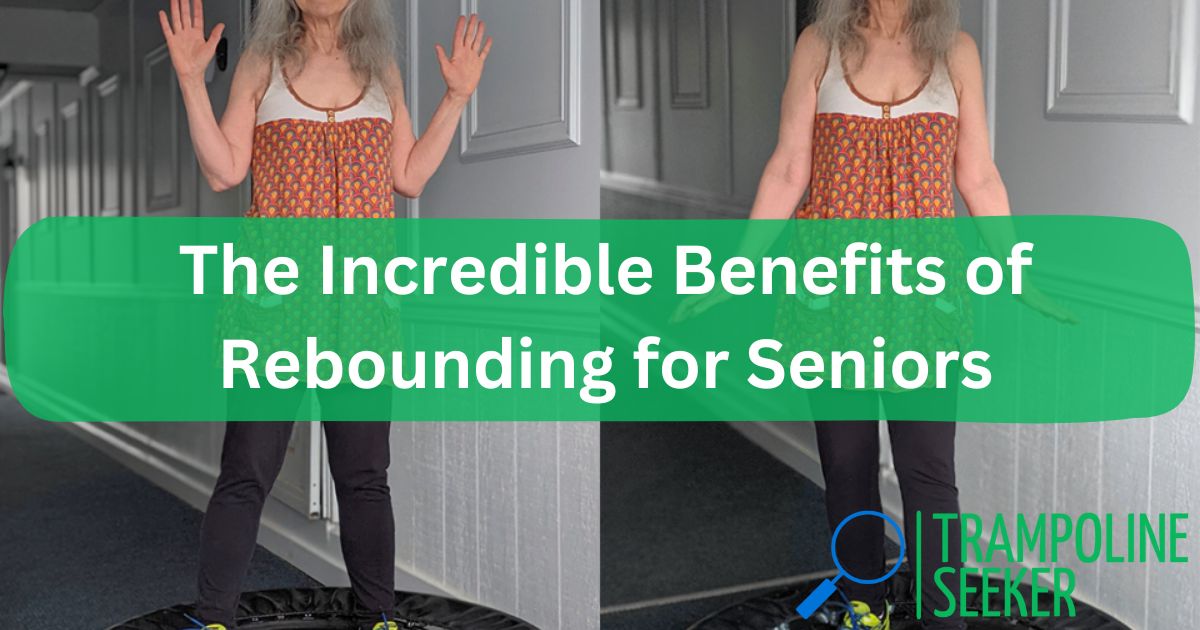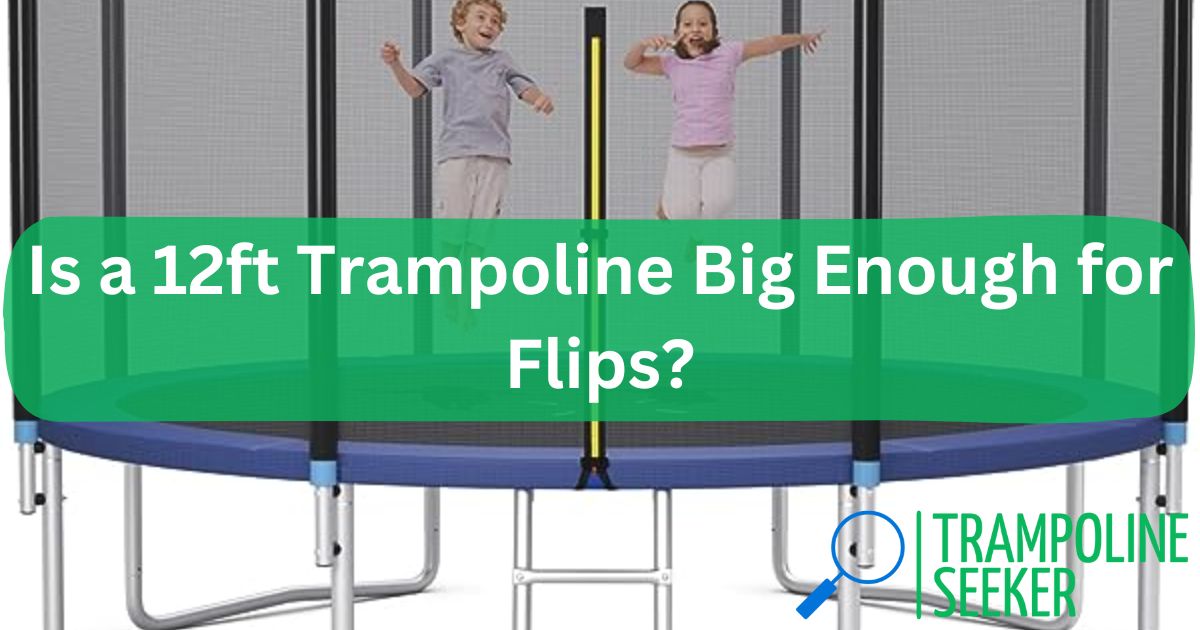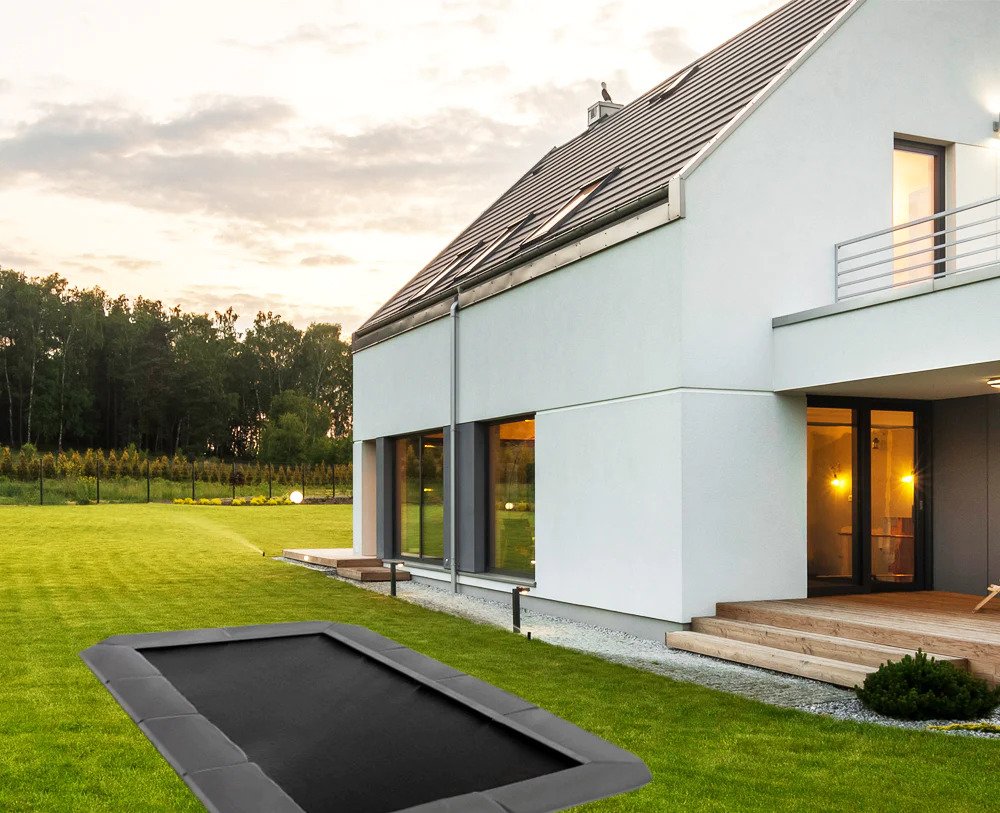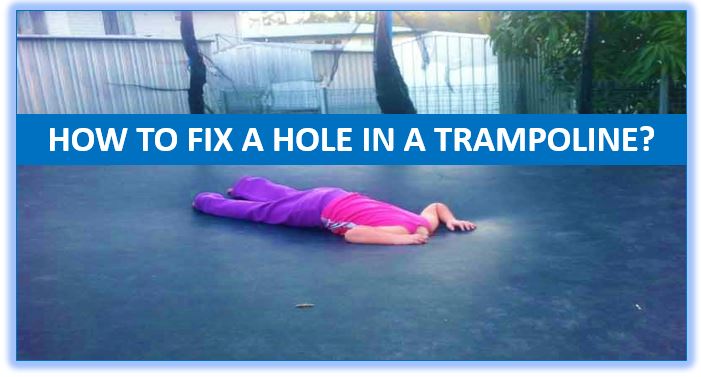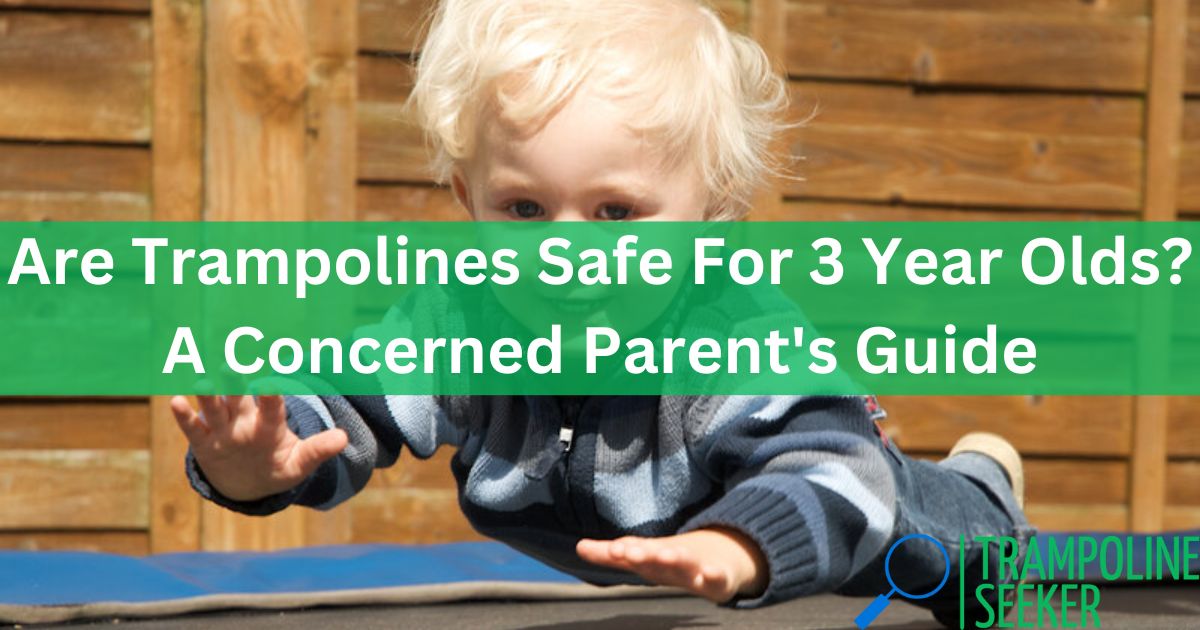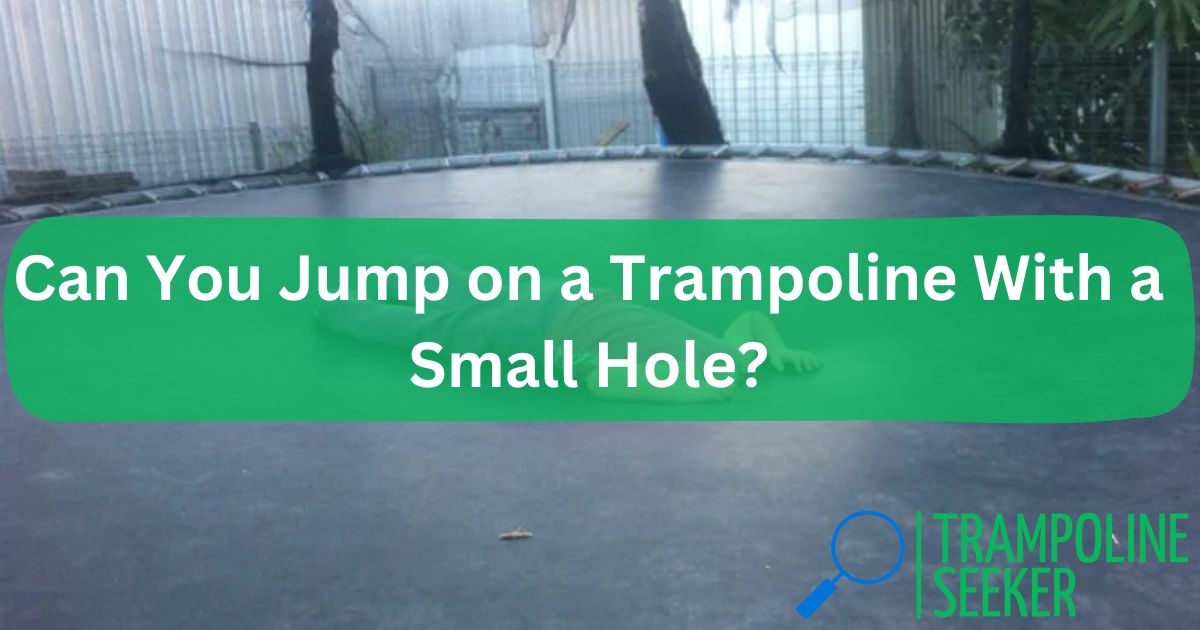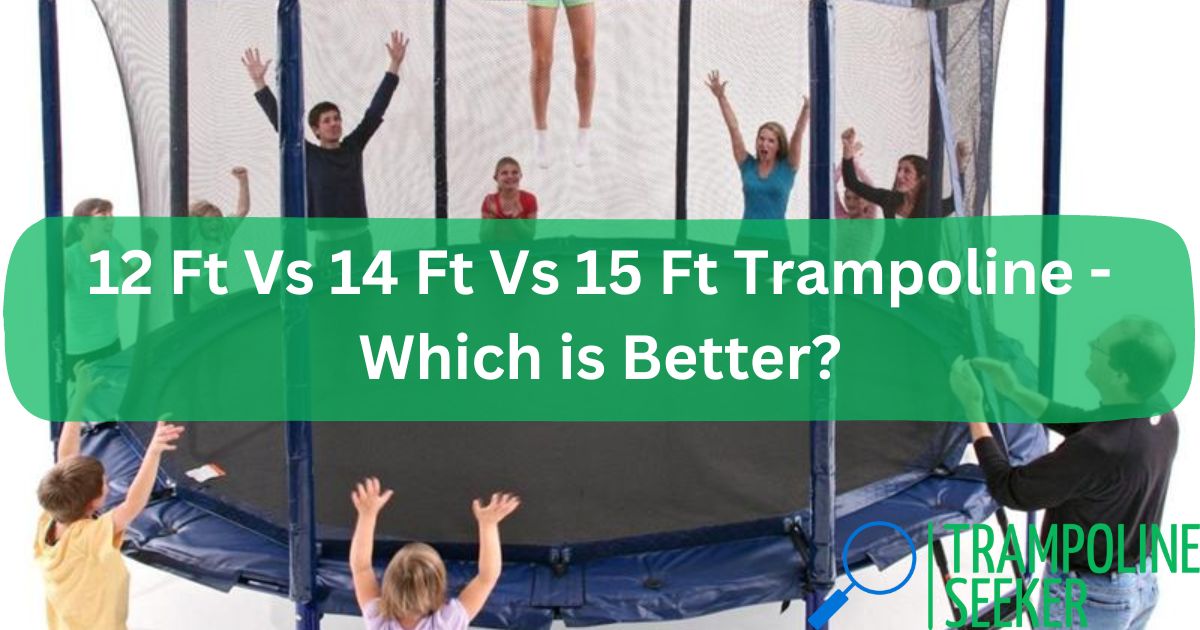Trampolines are one of the most fun backyard toys you can get for your family. I still remember the excitement when we got our first trampoline – my brother and I were jumping for joy, literally! We had hours of fun bouncing, playing games, and perfecting our “trampoline tricks”.
But nothing lasts forever, so how long can you expect your trampoline to keep bouncing before it needs replacing?
The short answer is that a high quality trampoline can last anywhere from 5-15 years with proper care and maintenance.
In this blog post, I’ll go into more detail on the lifespan of different trampoline components and factors that impact longevity. As an avid trampoline jumper and parent, I’ve learned a thing or two about getting the most bang for your buck when it comes to trampolines!
Trampoline Lifespans by Component
There are a few key components that make up a trampoline. The lifespan of each can vary:
Trampoline Mat
This is the bouncing surface made of woven polypropylene or polyethylene material. It takes the most abuse as kids jump up and down.
Lifespan: 3-7 years for residential use. Turning and rotating the mat periodically helps distribute wear and extends lifespan. Mats may need replacing sooner if left uncovered in harsh weather conditions.
Trampoline Frame
The metal frame pieces form the backbone of the trampoline. It should be rust-resistant galvanized steel or powder coated steel.
Lifespan: 7-15 years. Can last decades if made from quality rust-resistant materials.
Trampoline Springs
The coils that connect the mat to the frame. Repeated bouncing stretches and strains the springs over time.
Lifespan: 3-5 years for budget springs. 7-10+ years for heavy duty galvanized springs.
Safety Padding
The foam pieces that cover the frame and springs to prevent injury.
Lifespan: 3-5 years. Padding breaks down over time from UV exposure.
Safety Enclosure Net
The netting around the trampoline perimeter to keep jumpers contained.
Lifespan: 3-5 years. Mesh can deteriorate or get damaged.
As you can see, the jumping mat and springs tend to have shorter lifespans around 5 years. The supporting frame and enclosure netting last closer to 10 years. But there are many variables that affect longevity…
Factors That Affect Trampoline Lifespan
How long your trampoline lasts depends on a variety of factors:
Usage Frequency & Weight
The more often (and heavier) people jump, the faster wear and tear adds up. Moderate use by kids under 200lbs is ideal.
Number of Users
The more jumpers, the more strain. Limit users to manufacturer guidelines to prevent premature damage.
Jumpers Age & Behavior
Active kids and teens are rough on trampolines. Discourage somersaults and aggressive bouncing that stresses components.
Sun & Weather Exposure
UV rays and extreme heat/cold cause material degradation, especially on mats and padding. Use a cover when not in use.
Storage & Maintenance
Proper care by cleaning, inspecting for damage, and replacing parts extends the life of a trampoline significantly.
Quality of Materials
Budget trampolines with low-grade materials deteriorate quickly. Invest in quality materials for increased durability.
Manufacturer Warranty
Longer warranties often reflect better construction and longer lifespans. Look for at least 2-5 years of coverage.
As you can see, there are many variables involved! Next let’s look at…
Trampoline Lifespan by Type
Not all trampolines are built the same. Here’s how different categories generally compare:
Budget Trampolines
Affordable consumer models made with basic materials and light frames.
Average Lifespan: 3-4 years
Pros: Low initial cost Cons: Don’t last with regular use
Mid-Range Trampolines
Offer better materials than budget brands. Upgrade springs and frame.
Average Lifespan: 5-7 years
Pros: Better lifespan for the price Cons: Still limited compared to premium brands
Premium Trampolines
Investment-grade with highest quality materials and construction.
Average Lifespan: 10-15 years
Pros: Durable for years of regular use Cons: Higher upfront cost
Commercial Trampolines
Made for heavy daily use in gyms, parks, etc.
Average Lifespan: 10-20+ years
Pros: Built to take a pounding Cons: Overkill for residential use
I recommend splurging on a premium trampoline if you can. The extra upfront cost pays off within a few years compared to replacing cheaper models frequently.
Now let’s look at…
Lifespan of Popular Trampoline Brands
Here are the average lifespans for some of the top trampoline manufacturers:
| Brand | Average Lifespan |
|---|---|
| Springfree | 10-15 years |
| Vuly | 8-12 years |
| Skywalker | 5-8 years |
| JumpSport | 8-12 years |
| Upper Bounce | 4-7 years |
Springfree is known for their innovative spring-free design and high quality materials. Their 10-15 year lifespan reflects excellent construction.
Vuly, JumpSport and similar premium brands also invest in durable components that last over a decade.
Mid-range options like Skywalker last closer to 5-8 years – not bad for the price.
And budget picks like Upper Bounce last just a few years with regular use.
I recommend sticking with premium brands if you want a trampoline that lasts through years of childhood fun. The initial investment pays for itself over time.
Next let’s talk about…
How Weather Affects Trampoline Lifespan
Trampolines live outside and are subjected to sun, rain, wind, and temperature extremes. This can impact lifespan if the materials are not weather-resistant:
Sun Exposure
UV rays degrade materials over time, especially mats and padding. Always use a weather cover when not in use.
Rain & Moisture
Wet conditions can cause rust on frames and springs. Keep leaf debris cleaned off mats so water drains.
Wind
Gusty winds put added stress on frames and enclosures. Anchor trampolines properly in windy regions.
Hot & Cold Temps
Extreme heat and cold causes material expansion and contraction. Disassemble in winter if possible.
Obviously you can’t control the weather. But you can take steps to protect your investment:
- Use a weather cover when not in use
- Avoid leaving trampolines uncovered all year round
- Clean off dirt and debris so mats dry quickly
- Disassemble and store the mat and pads in winter
- Anchor the frame properly in windy areas
Taking weather precautions will extend the life of any trampoline significantly.
Now let’s talk maintenance…
Proper Care & Maintenance
Taking good care of your trampoline is key to getting the most years of use before replacement. Here are my top tips:
Inspect the mat – Check for worn spots, holes, or fraying seams. Catch and repair any damage early.
Check the springs – Replace any overstretched or damaged springs to maintain proper bounce.
Tighten bolts & fasteners – Work loose over time. Tighten everything up at least once per year.
Keep debris cleared – Remove leaves or dirt so mat dries quickly after rain and snow.
Limit use in bad weather – Avoid use in heavy rain or winds over 25mph to prevent undue stress.
Store a cover when not in use – Protect from UV damage and extend mat life significantly.
Bring in pads in winter – Prolonged snow and ice damage foam padding over time.
Disassemble in winter – Removing mat and springs reduces wear if not in use for months.
Replace worn parts – Swap out padding and nets every 3-5 years. Catch problems before they compound.
And remember – follow all weight limits and use guidelines recommended by the manufacturer.
With the right care, you can add years of life to a quality trampoline. It’s worth the effort for all the fun it provides!
Final Thoughts
If you made it this far – congrats! To recap:
- Trampoline lifespan ranges from 3 years (budget) up to 15+ years (premium)
- Key factors that affect longevity are materials, weather, use frequency, weight limits, and maintenance
- Invest in a high quality trampoline from a reputable brand for maximum durability
- Take steps to protect from harsh weather and properly maintain your trampoline
With the right trampoline and proper care, your family can enjoy years of bouncing fun! Just use common sense, follow usage guidelines, and inspect everything regularly.
I hope these insights help you decide which trampoline is right for your family and how to make it last. Leave a comment with any other trampoline lifespans or tips! And happy jumping!
Articles You May Like to Read:


